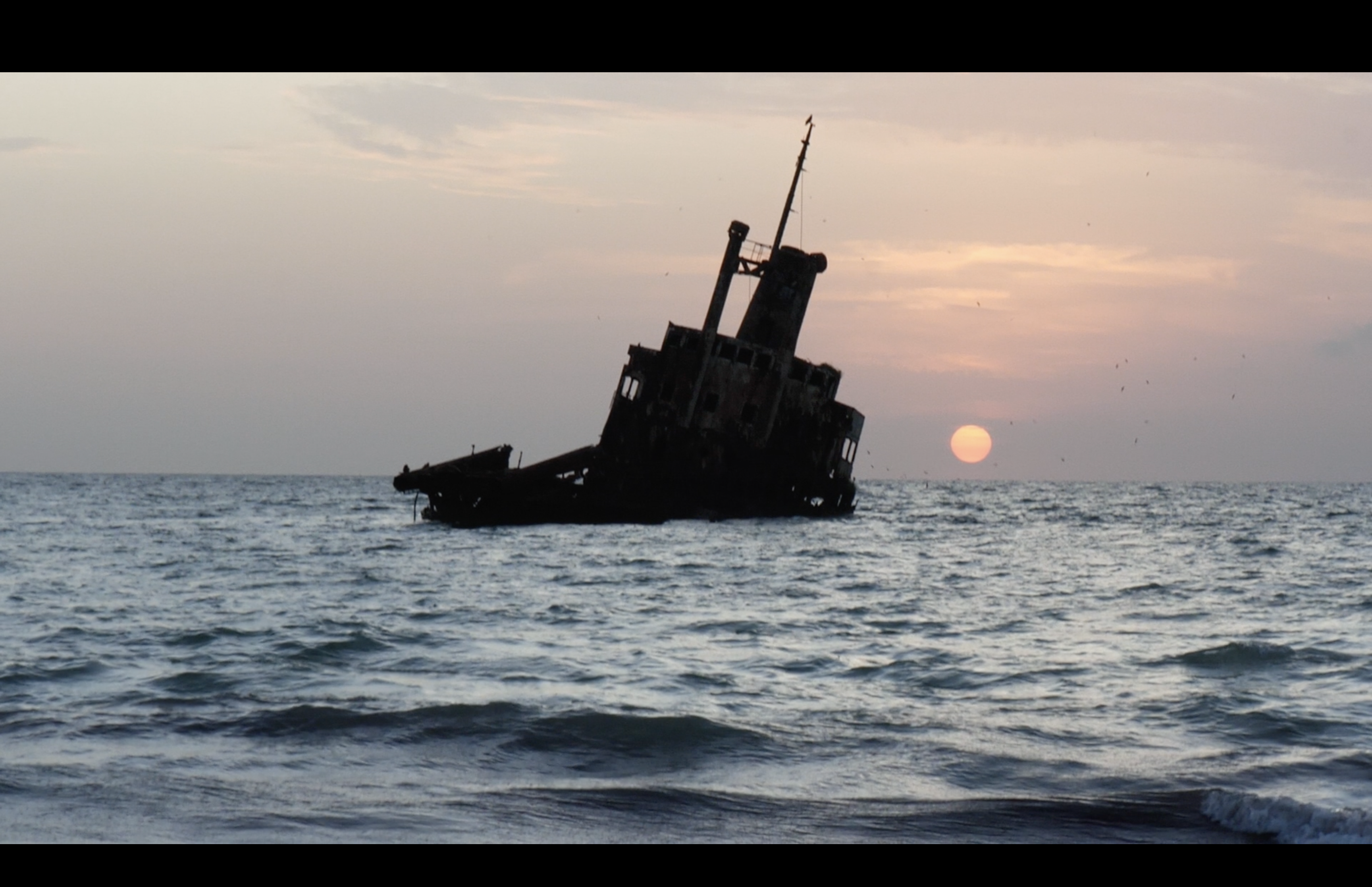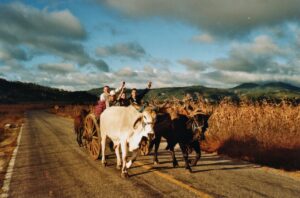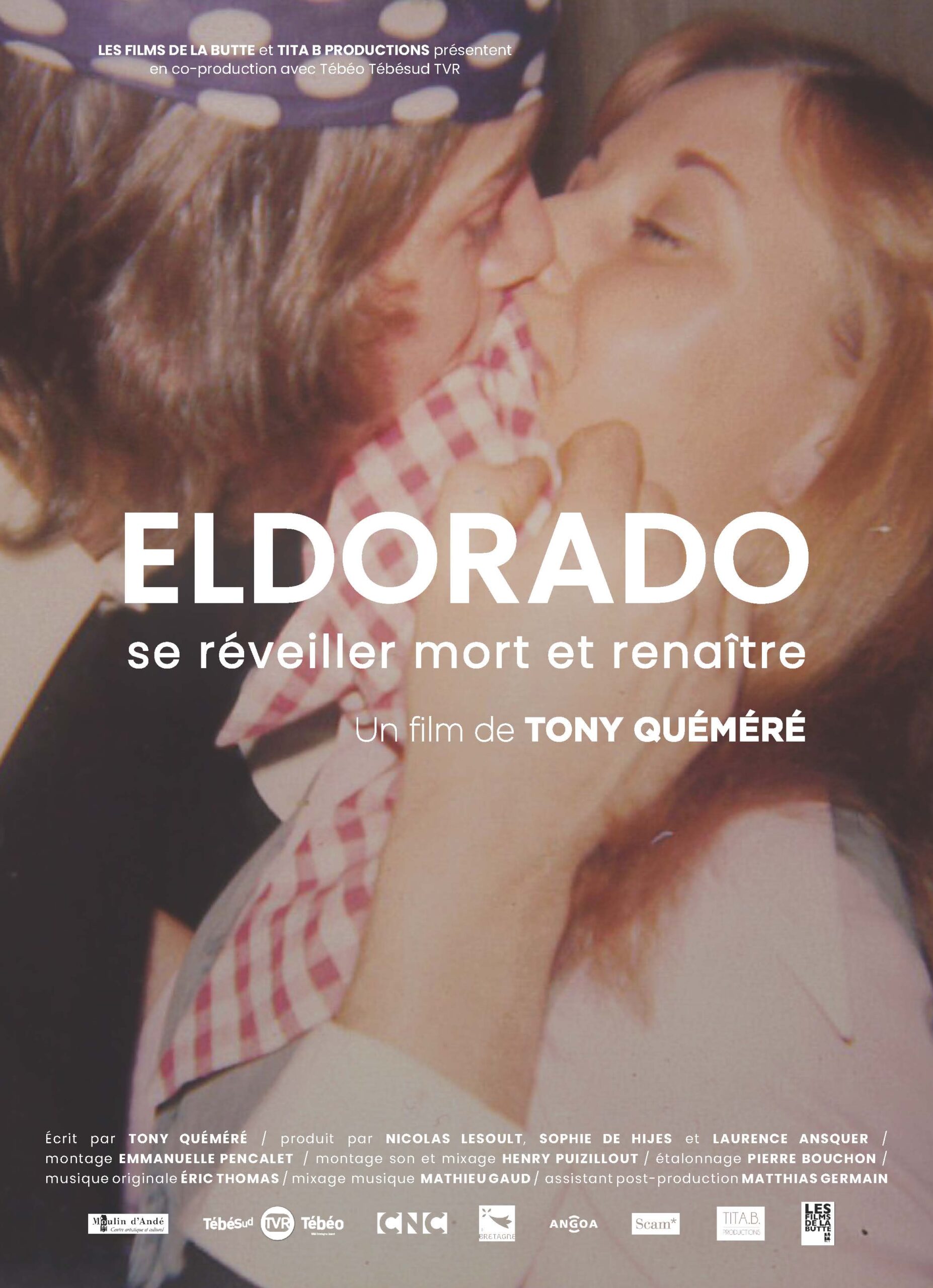Eldorado
Documentary
Director : Tony Quéméré
Duration : 61 minutes
Year of production : 2022
Broadcaster : Tébéo, Tébésud, Festival Après Varan
Supports : Procirep, Région Bretagne, CNC
Co-producer : Tita B.
"I left my filthy hamlet of Kergoat at the tip of Finistère a long time ago. But now it’s time to return: Maryvonne (my mother) is in the hospital, in a bad state.
Eldorado is an autobiographical documentary, filmed through a subjective camera and narrated with a voice full of self-deprecation. It's a raw yet tender and poetic account of life and death in a small Breton family, shaken by the upheavals of the world."
Mexico, 1999/2000. I, Tony, find myself parachuted with Vincent, another student I barely know, into the middle of an American-style fortress campus in a Third World country: ID checks at the university entrance, police on duty, pervasive racism, and wealthy students… Total shock.
After three months, we are both miserably expelled from this school and use our university grant to travel for three and a half months across the "real" Mexico, Guatemala, and Belize, living on a diet of sandwich bread and mayo. The result: a 10-kilogram weight loss in just a few weeks. We both, in our own ways, compete to see who can become the most Mexican, with a vague plan to end the journey in Cuba.
As we travel from Mexico City to Cancun, passing through Oaxaca, Guatemala, and Belize, we experience extravagant adventures that serve as a pretext to depict vulgar scenes of life and customs through our interactions with surreal characters: fake shamans on ecstasy, telenovela divas, buffoonish archaeological guides, and even young fakir children in the metro.
A few anecdotes: While trying to "blend in" as Mexicans (with our Decathlon backpacks and Guide du Routard sticking out of our pockets) at the Teotihuacan archaeological site, a trinket vendor sticks to us like glue, shouting, "A gift for the mother-in-law, cheaper than at Leclerc!" Another example: while visiting a "truly traditional" market in Mexico City, so clueless and sure of our heterosexual hormones, we ogled a waitress serving chilaquiles… only to hear her deep voice as she took our order: she was a transgender woman.
Then one day, I learned that my exit plan (a paid internship in Chicago with a homeless aid organization) fell through (the U.S. State Department denied my visa request). With no money left, I had to admit defeat to Vincent, who had just enough savings to reach Cuba on his own (thanks to hard-earned savings from a peasant aunt in Béarn). But Vincent decided to forgo Cuba and share what little he had left with me.
Mexico City became our last hope. Lost in this futuristic and archaeological megacity, we were eventually taken in by Oliva, a "mama" figure, a good fairy, who saved us and got us back on our feet. I took advantage of the sympathy of a policeman in front of a massive building and asked him to give me a phone book. I tore out the yellow pages for international organizations and called them one by one, looking for an internship. I found one at the United Nations Library. Two weeks later, I started part-time in the communications department with a small stipend. While redoing my papers at the French Embassy, I left my CV on a whim. They called me for a part-time internship in the audiovisual department, which later turned into a full-time contract.
Vincent had to return to France before me. Oliva asked me to introduce our worst enemy to the mysteries of Mexico: Quentin (pronounced "queenteen"), a young Mormon from the U.S. I accepted out of love for Oliva. At the moment of takeoff back to France, I felt the tearing away of my young Mexican roots.


LES FILMS DE LA BUTTE © All rights reserved 2026
